10 Stunning Spirea Alternatives for a Vibrant Garden
Cover image: Weigela Sonic Bloom® Punch courtesy of Spring Meadow Nursery, Inc. via provenwinners.com
Wondering what to plant instead of spirea? These colorful, low-maintenance alternatives will keep your garden blooming all season long!
Spirea has long been a garden favorite, and it’s easy to see why! This reliable shrub is a breeze to grow, bursting with colorful blooms and offering a long season of interest.
But while spirea brings plenty of beauty, it also has a reputation for spreading invasively. This spreading tendency leads many gardeners to seek alternatives to spirea.
Luckily, if you are wondering what to plant instead of spirea, there are plenty of other choices that bring the same vibrant color, extended bloom time, and low-maintenance beauty to your landscape, without the invasive tendencies.
From flowering shrubs to hardworking perennials, this list highlights ten fantastic spirea alternatives that are just as easy to grow.
In this article , you'll find photos to inspire you and ideas for how to use these plants in your garden. So, if you’re ready to swap spirea for something just as stunning (but better behaved), let’s dive in!
And one quick note - you may not be aware, but there are seedless varieties of spirea available. Click here to read our article about Japanese spirea to learn more.
1. Weigela Sonic Bloom® Punch
Botanical name: Weigela florida 'SMNW9RB'
Type: Dense, compact, arching shrub
Zones: 4-8
Light requirements: Full sun
Size: 2.5-4 feet high and 4 feet wide
Bloom time: Spring and summer
Attributes: Abundant bright pink flowers in spring with periods of rebloom until fall; bronze-green foliage; attracts hummingbirds and butterflies; deer-resistant.
Landscaping ideas: Mass planting, foundation planting, containers, mixed borders, small yards.
Tip: This weigela variety likes well-draining soil and does not require any pruning.
Weigela Sonic Bloom® Punch. Image courtesy of Spring Meadow Nursery, Inc. via Provenwinners.com
2. Rose Creek Abelia
Botanical name: Abelia x grandiflora ‘Rose Creek’
Type: Dense, compact semi-evergreen shrub
Zones: 6-9
Light requirements: Full sun - part shade
Size: 3-4 feet high and 4-5 feet wide
Bloom time: Spring until frost
Attributes: Small white flowers; bright green leaves turn deep purple in autumn; attracts butterflies, bees, and hummingbirds; deer-resistant; drought-tolerant once established; heat resistant.
Landscaping ideas: Foundation planting, mass planting, border garden, butterfly or pollinator garden, lining hot, dry sidewalks and driveways, low semi-evergreen hedge.
Tip: Best flowering and leaf color occurs in full sun
Rose Creek Abelia
3. Sunshine Blue® II Bluebeard
Botanical name: Caryopteris incana 'SMNCVH'
Type: Mounding, multi-stemmed deciduous shrub
Zones: 5-9
Light requirements: Full sun
Size: 2-3 feet high and wide
Bloom time: Late summer-early fall
Attributes: Colorful blue flowers and gold foliage; attracts butterflies, hummingbirds and pollinators; cold-tolerant variety; deer-resistant; drought tolerant once established.
Landscaping ideas: Pollinator or butterfly garden; border garden; mass planting; lining walkways; containers; edging.
Tip: Bluebeard is also called “Blue Mist Spirea”, but it belongs to a different plant family and is unrelated to the spirea plant.
Sunshine Blue® II Bluebeard. Image courtesy of Proven Winners, provenwinners.com
4. Little Hottie Panicle Hydrangea
Botanical name: Hydrangea paniculata 'Bailpanone'
Type: Compact, multi-stemmed, rounded deciduous shrub
Zones: 3-8
Light requirements: Full sun - part shade
Size: 3-5 feet high and wide
Bloom time: Summer - early fall
Attributes: Large flowers change from green to white and later pink as season progresses; strong stems; heat-resistant; blooms on new growth; tolerant of severe winter weather.
Landscaping ideas: Mass planting, foundation planting, low deciduous hedge, smaller space gardens, containers, naturalistic planting, small grouping.
Tip: This hydrangea blooms on new wood and can be pruned back in later winter or early spring.
Little Hottie® Panicle Hydrangea. Image courtesy of Bailey Nurseries
5. Firefly Fuschia Yarrow
Botanical name: Achillea x ‘Firefly Fuchsia’
Type: Herbaceous perennial
Zones: 3-8
Light requirements: Full sun
Size: 22-24 inches high and 26-30 inches wide
Bloom time: Early - late summer
Attributes: Bright fuchsia pink flowers age to light pink; soft and fern-like foliage; pollinator favorite; drought tolerant; thrives in poor soil; deer-resistant; rabbit-resistant; dried seed heads bring fall and winter interest.
Landscaping ideas: Border planting, mass planting, cottage garden, cutting garden, pollinator garden, containers, next to hot sidewalks, walkways and driveways.
Tip: After blooms fade, cut back by half to encourage a second flush of flowers.
Firefly Fuschia Yarrow. Image courtesy of Walters Gardens, Inc.
6. Perfecto Mundo® Double Purple Reblooming Azalea
Botanical name: Rhododendron x 'NCRX4'
Type: Evergreen shrub
Zones: 6-9
Light requirements: Full sun - part shade
Size: 2.5-3 feet high and 3 feet wide
Bloom time: Spring - fall
Attributes: Showy ruffled double-purple flowers; abundant spring blooms with intermittent rebloom until frost; evergreen leaves; resistant to lace bugs.
Landscaping ideas: Foundation planting, mass planting, low hedge; containers; woodland garden; specimen planting; border.
Tip: Azaleas prefer well-draining, acidic soil.
Perfecto Mundo® Double Purple Reblooming Azalea. Image courtesy of Proven Winners, provenwinners.com
7. Yuki Cherry Blossom® Deutzia
Botanical name: Deutzia x 'NCDX2'
Type: Compact, rounded multi-stemmed shrub
Zones: 5-8
Light requirements: Full sun - part shade
Size: 12-24 inches high and wide
Bloom time: Early - late spring
Attributes: Delicate pink flowers; bronze-purple autumn foliage; neat and tidy mounded habit; attracts hummingbirds; deer-resistant; drought-tolerant once established.
Landscaping ideas: Mass planting, lining walkways, border gardens, edging, container planting, small yards, no-mow ground cover for a bank or slope.
Tip: Pruning is seldom needed.
Yuki Cherry Blossom® Deutzia
8. Midnight Marvel Hardy Hibiscus
Botanical name: Hibiscus ‘Midnight Marvel’
Type: Upright, compact rounded shrub
Zones: 4-9
Light requirements: Full sun - part shade
Size: 4-5 feet high and wide
Bloom time: Mid-summer - early fall
Attributes: Huge, tropical-looking scarlet red flowers; dark wine-red foliage; neat and compact shape; North American native; deer-resistant; attracts butterflies and bees.
Landscaping ideas: Border garden, accent planting, specimen, small grouping, island bed, rain garden.
Tip: This plant does best in full sun and consistently moist soil.
Midnight Marvel Hardy Hibiscus. Image courtesy of Walters Gardens, Inc.
9. Nitty Gritty® Pink Rose
Botanical name: Rosa x 'RUIRI0125A'
Type: Shrub rose
Zones: 4-9
Light requirements: Full sun
Size: 3 feet high and 4 feet wide
Bloom time: Spring through fall
Attributes: Abundant pink flowers; double blooms; self-cleaning; excellent disease resistance; tolerates urban pollution and road salt.
Landscaping ideas: Ground cover; border garden; mass planting; containers; edging; no-mow ground cover for slopes and banks.
Tip: Prune back by 1/3 in late winter or early spring
Nitty Gritty® Pink Rose. Image courtesy of Monrovia
10. Little Henry® Dwarf Sweetspire
Botanical name: Itea virginica ‘Sprich’
Type: Deciduous shrub
Zones: 5-9
Light requirements: Full sun to full shade
Size: 18-24 inches high and 3 feet wide
Bloom time: Late spring - early summer
Attributes: Fragrant white flowers; bright red fall color; low and compact shape; native to Eastern North America; attracts pollinators; deer-resistant.
Landscaping ideas: Mass planting, mixed border, rain garden, lining walkways, containers, borders, native plant gardens, erosion control on a slope or wet bank, informal deciduous hedge.
Tip: This low, compact sweetspire cultivar needs little pruning
Little Henry® Dwarf Sweetspire. Image courtesy of Bailey Nurseries
Set Your Spirea Alternatives Up for Success with These Essential Care Tips
Choose the Right Zone: Select spirea alternatives that are suited to your USDA hardiness zone to ensure they thrive year-round.
Match Light Requirements to Your Site:
Full sun plants need 6+ hours of direct sunlight daily.
Full sun to part shade varieties require at least 3 hours of direct sunlight.
Water for Strong Establishment: Even drought-tolerant alternatives to spirea need deep watering during their first two years. Keep the soil consistently moist but not soggy to support root growth. Read “How to Water Your Plants: The Ultimate Guide” for help coming up with a game plan.
Monitor Drought Conditions: Check the US Drought Monitor map to stay informed about local conditions and adjust watering as needed.
By following these guidelines, your plants will stay healthy, resilient, and beautiful all year long!

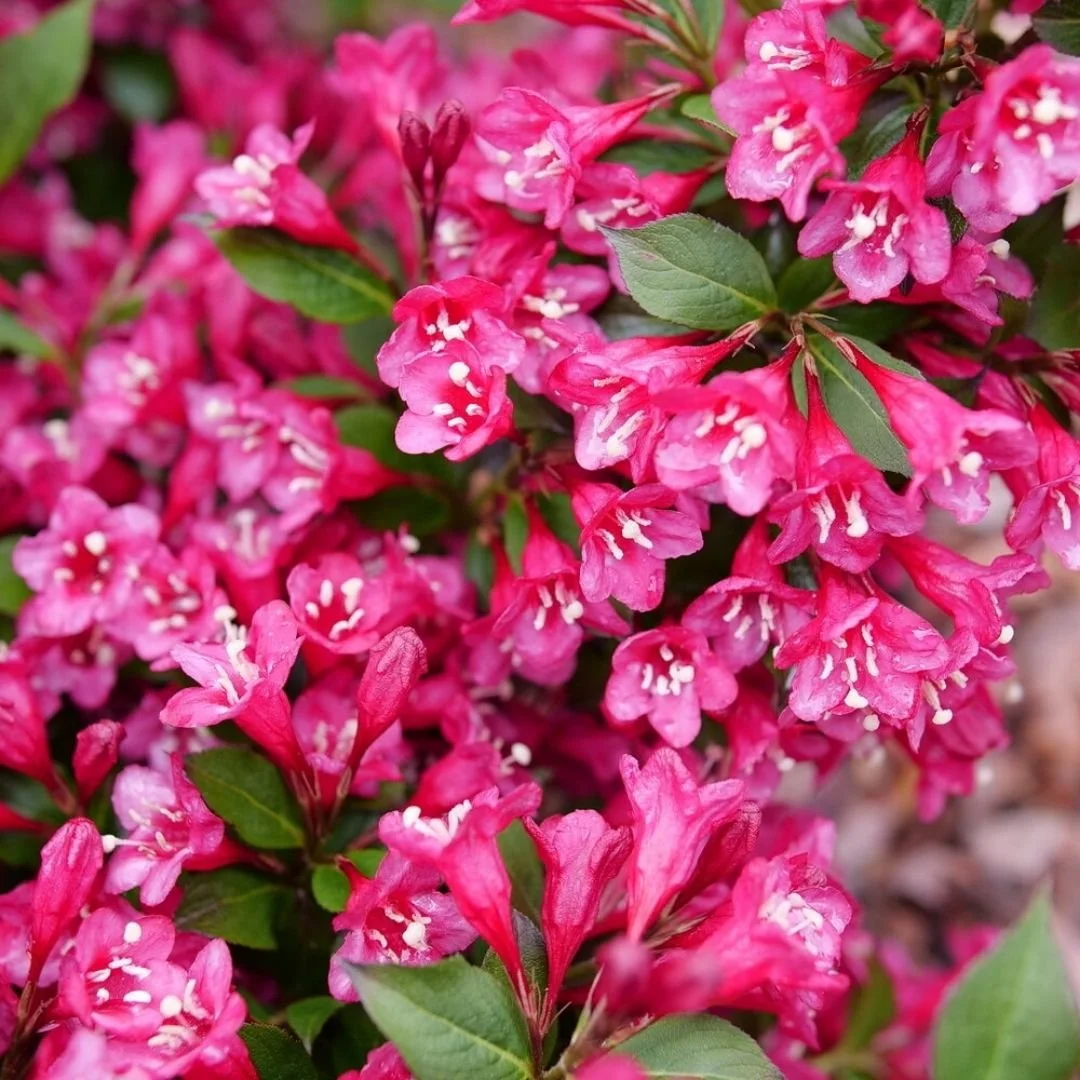
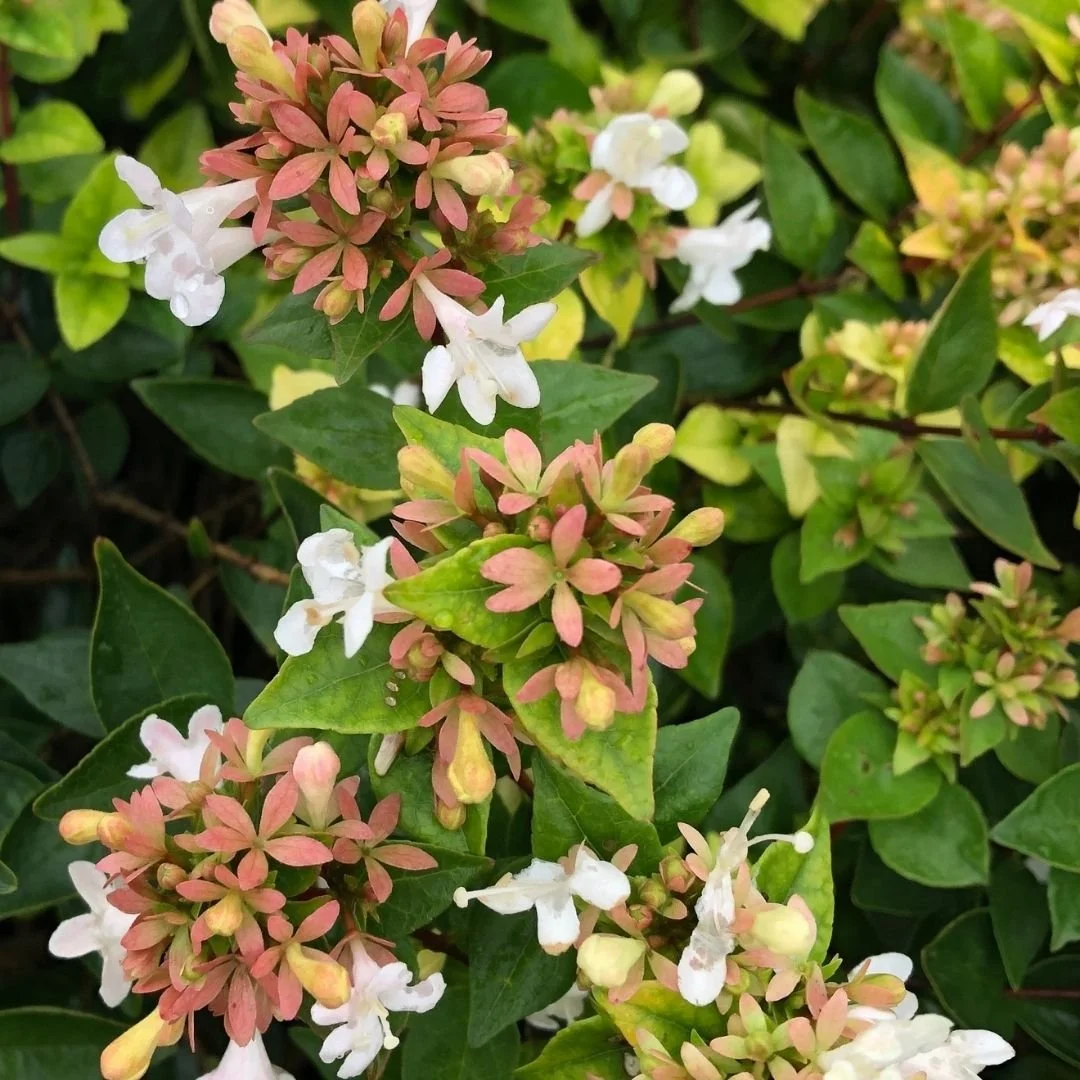



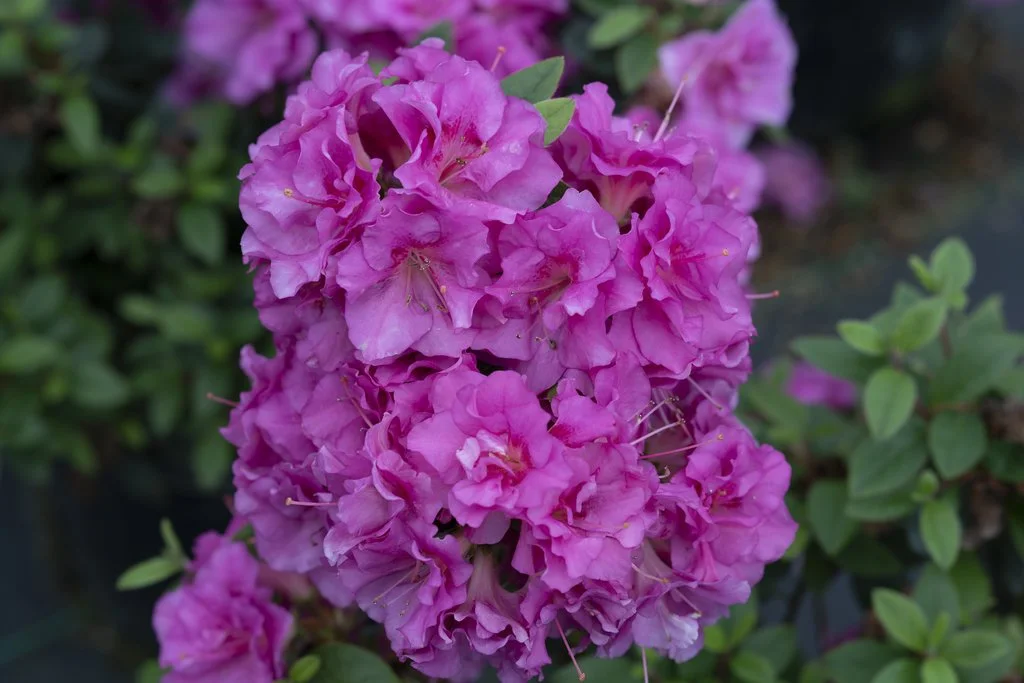
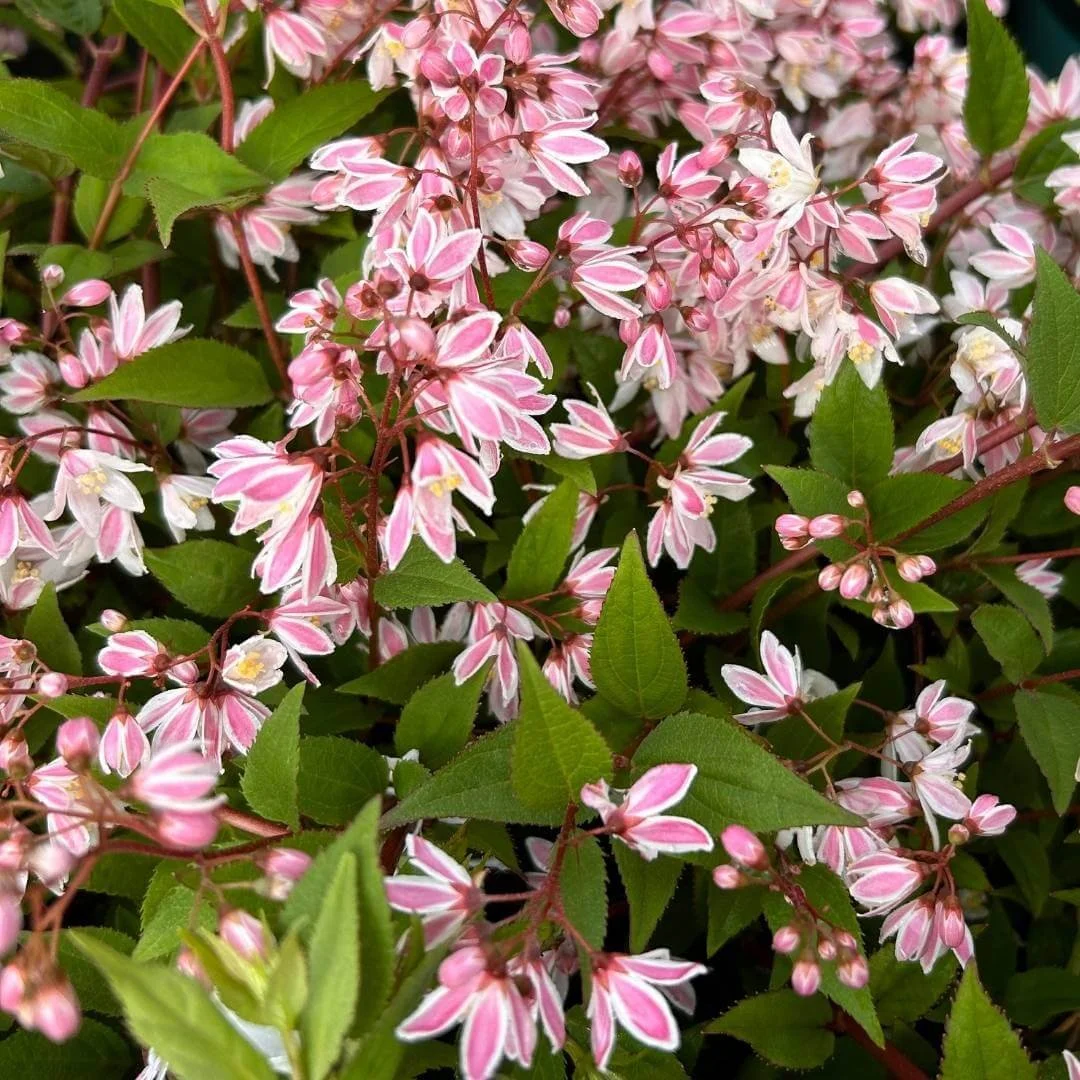

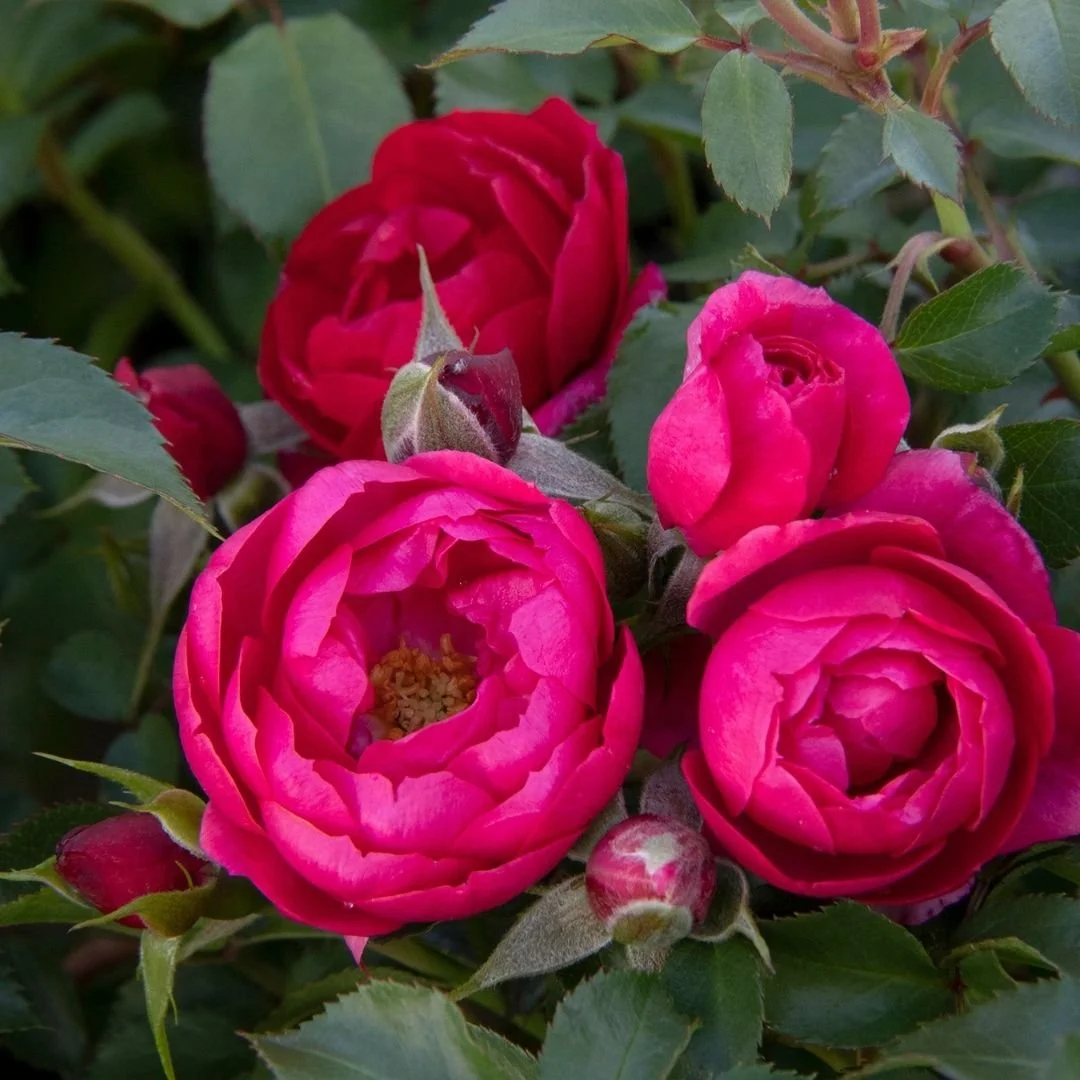
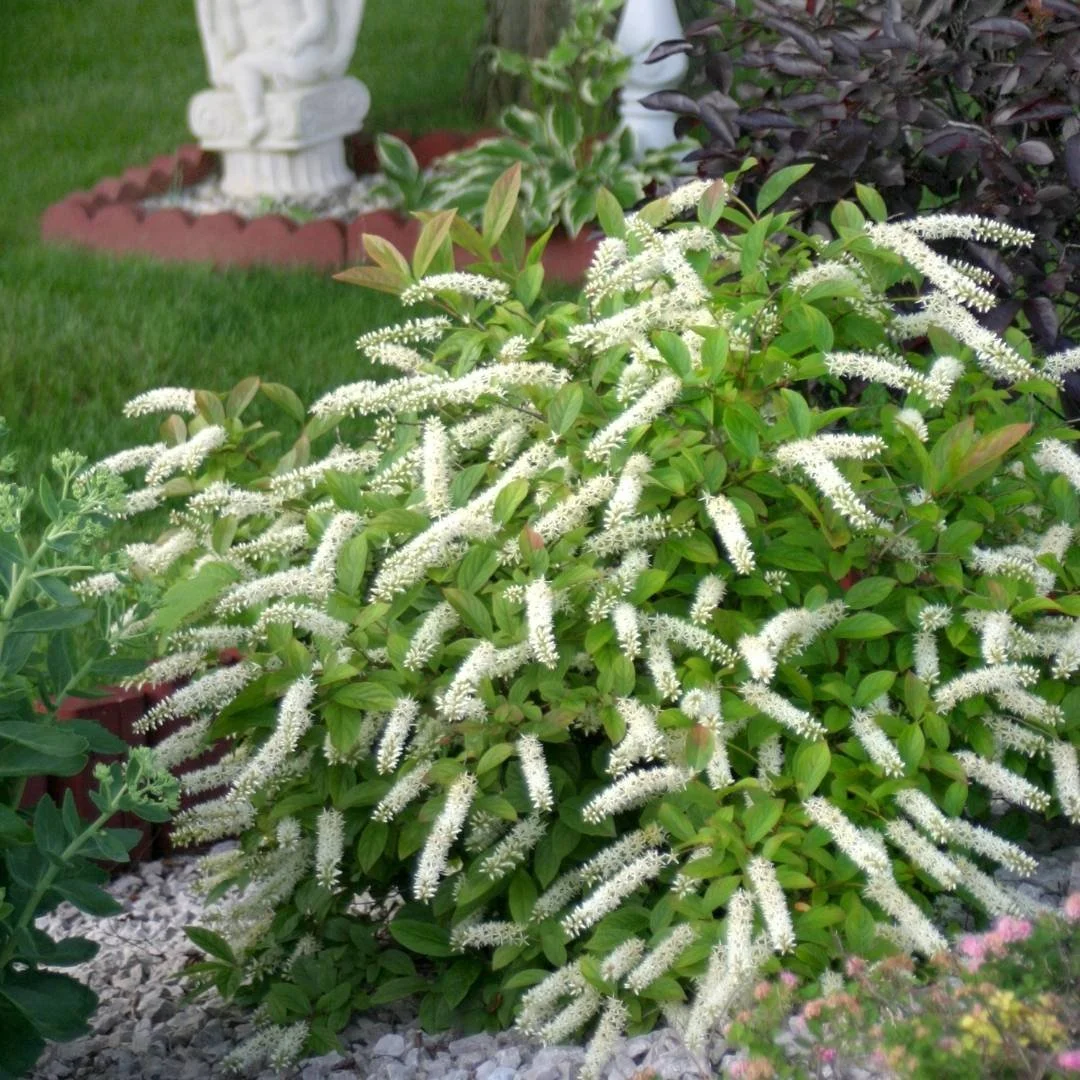

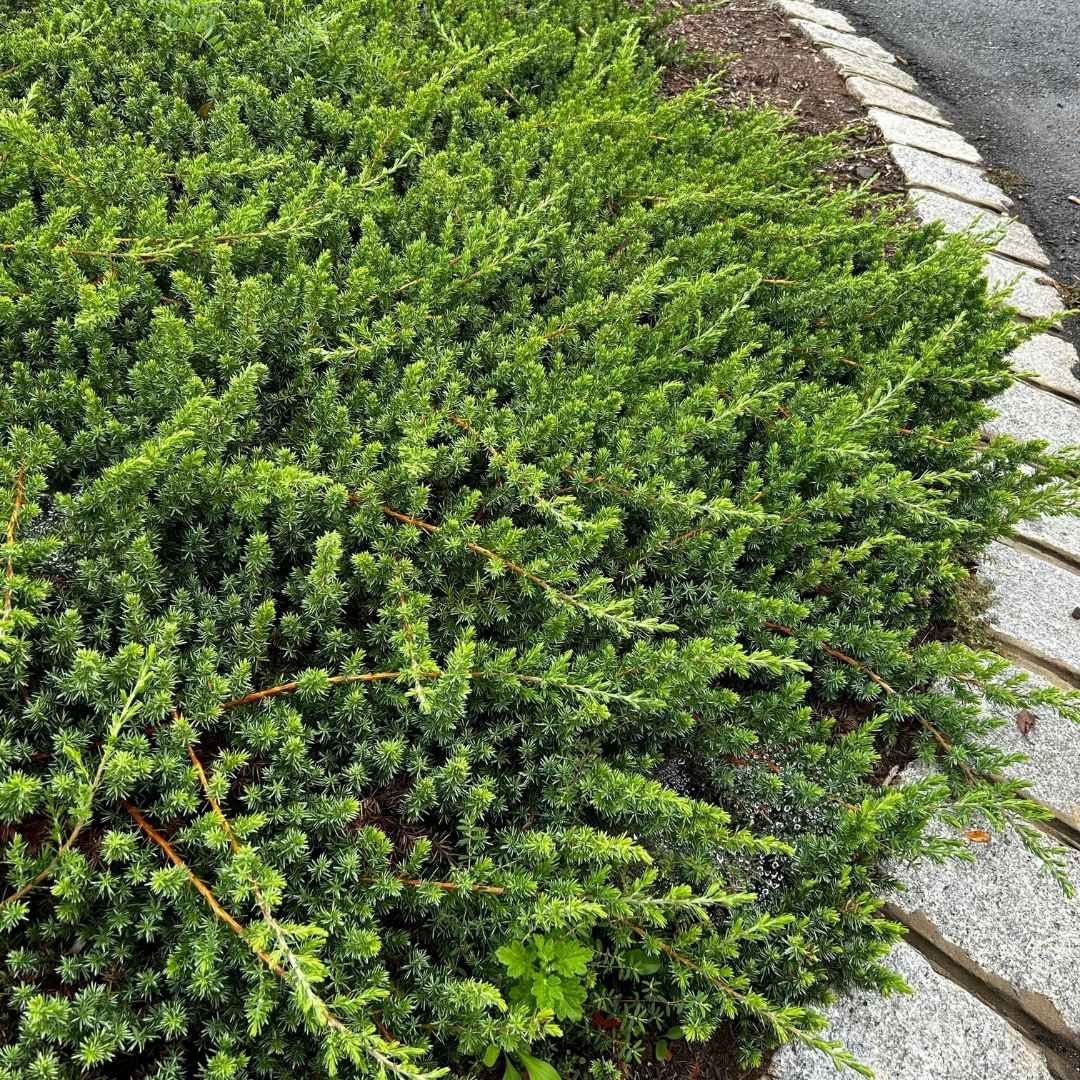
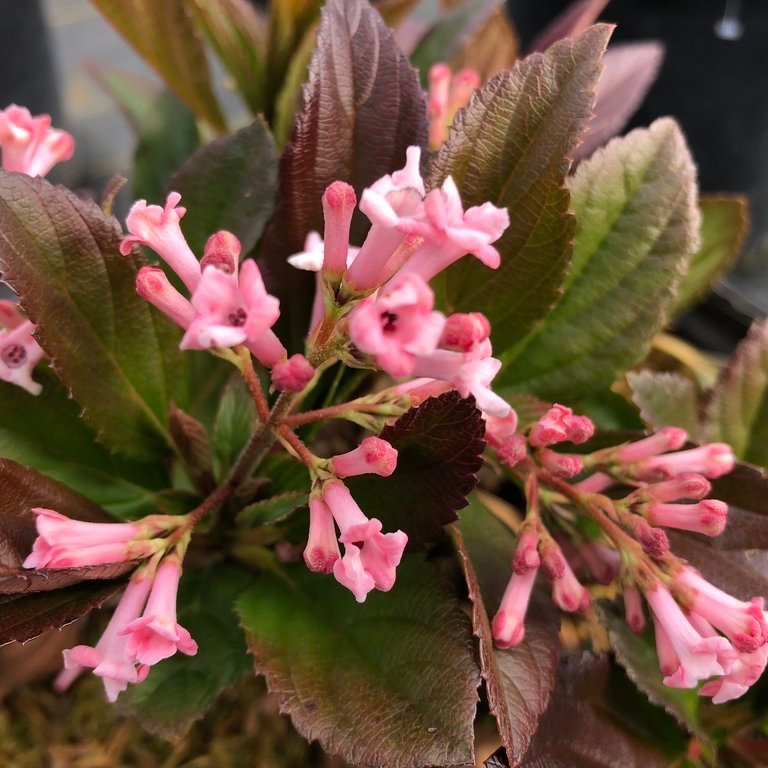
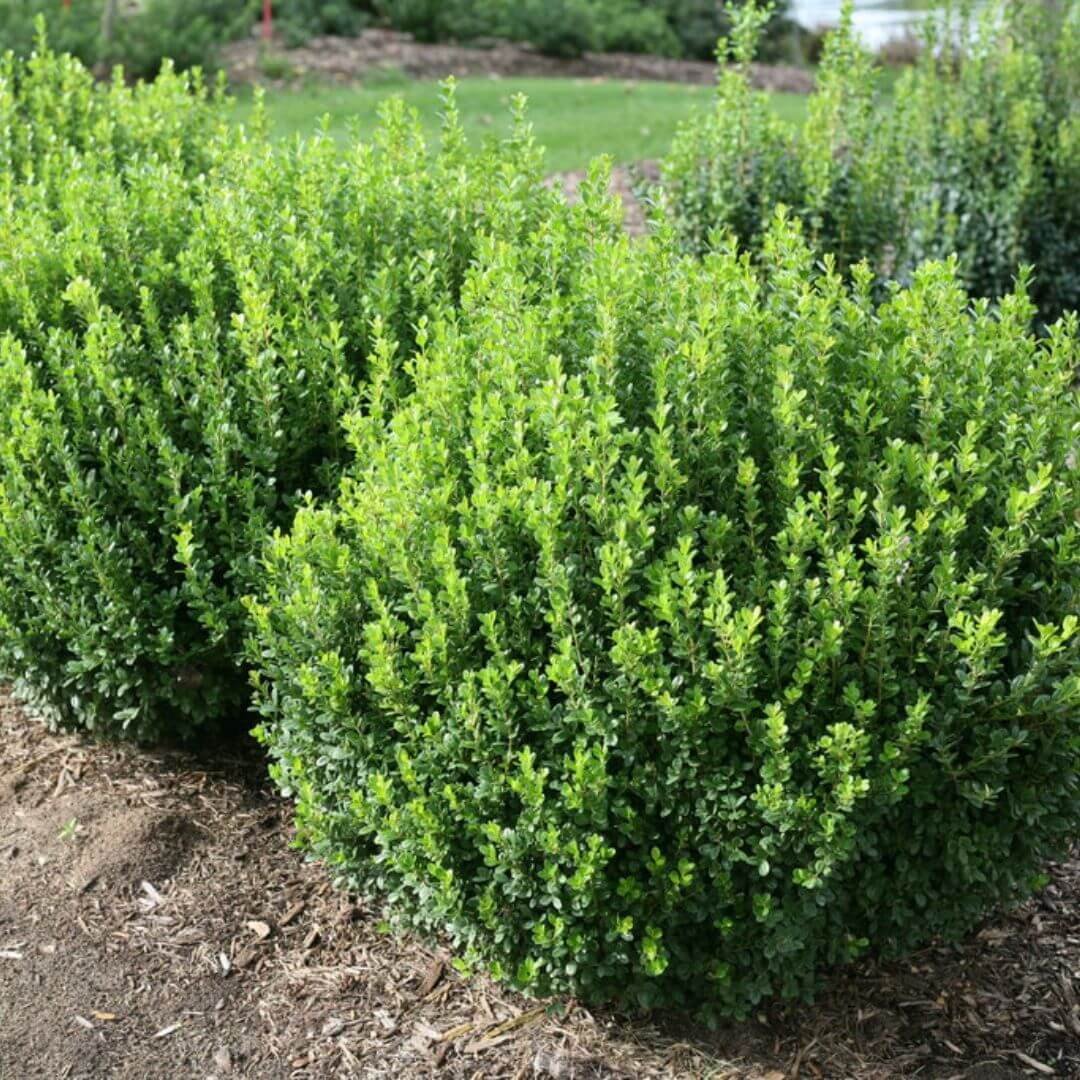
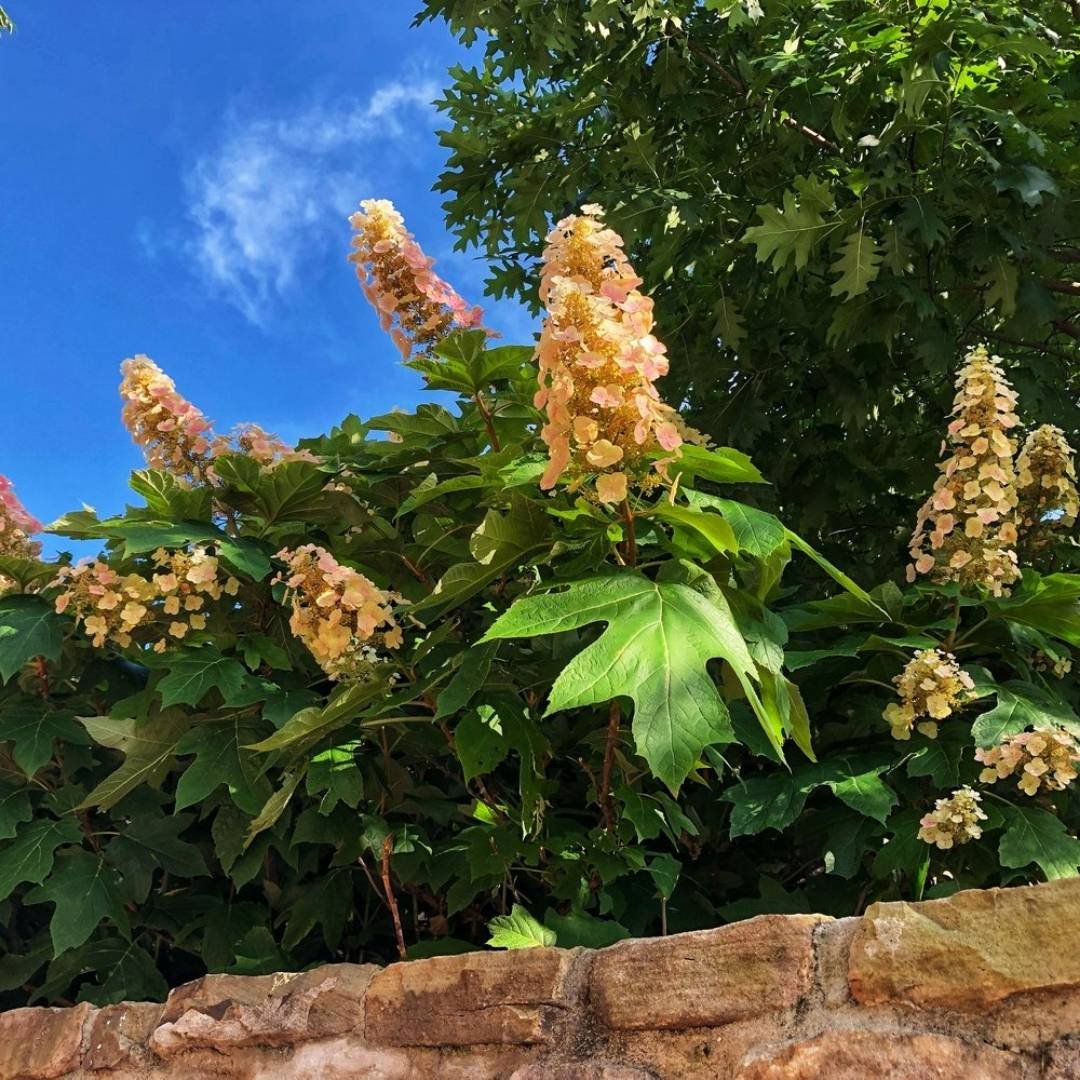

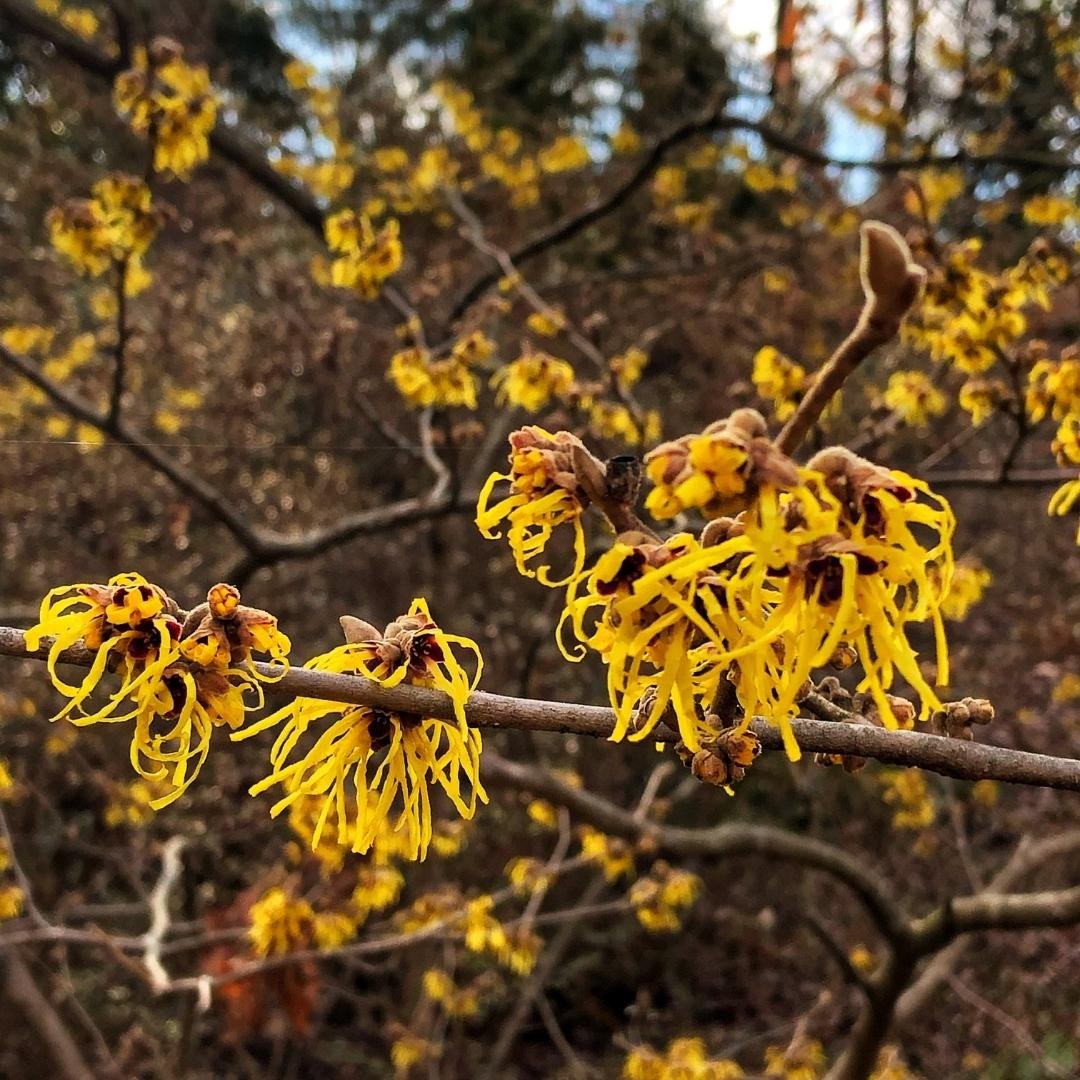
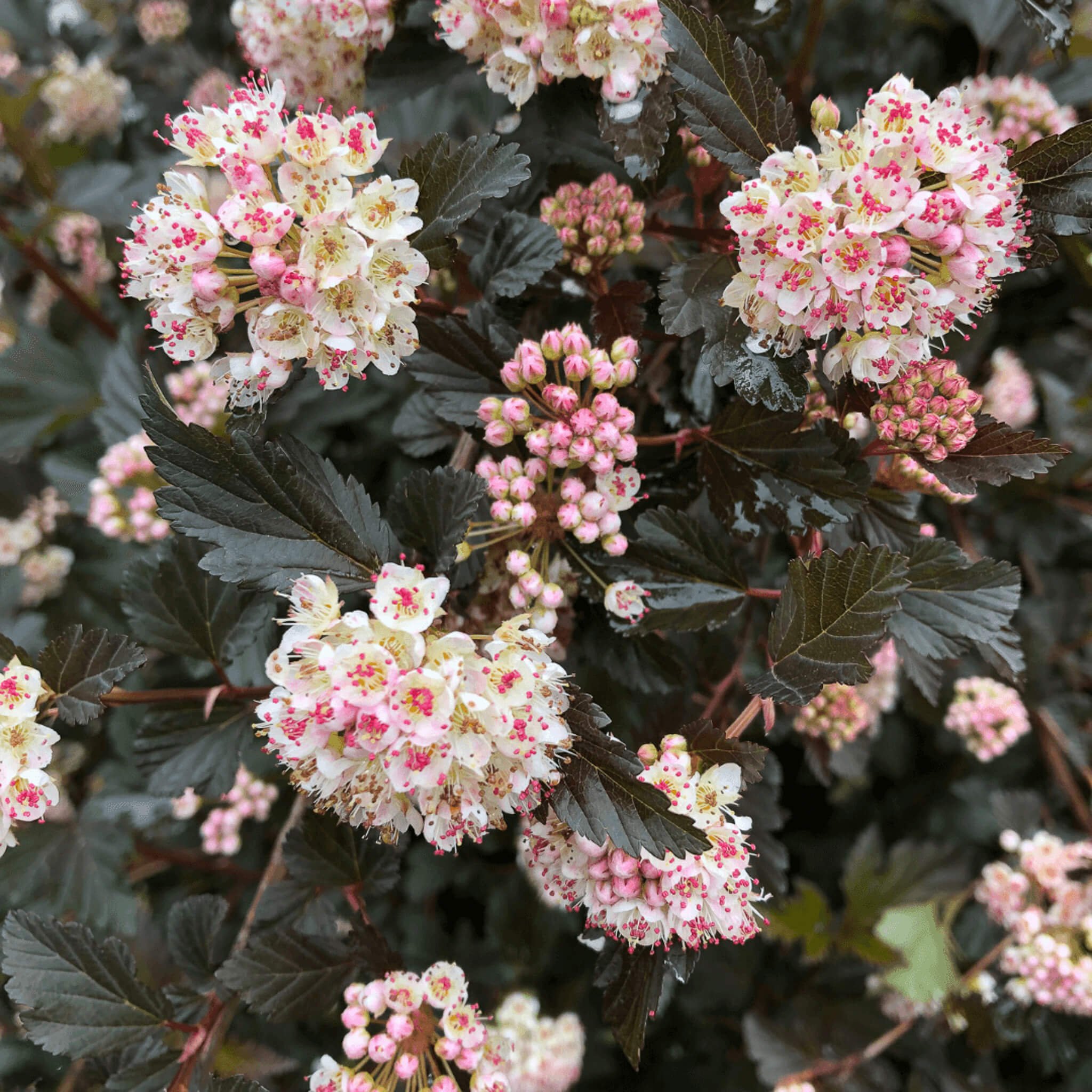

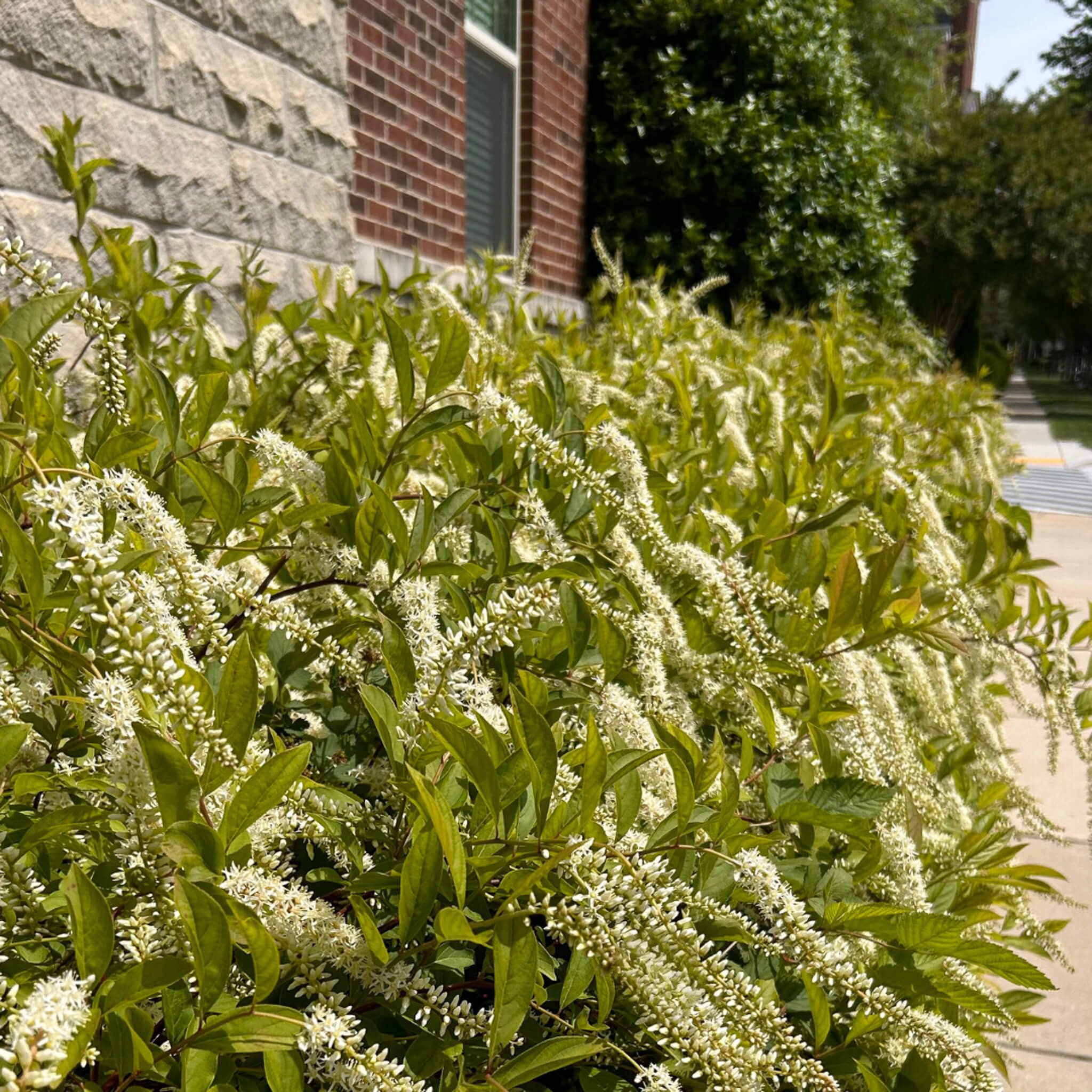
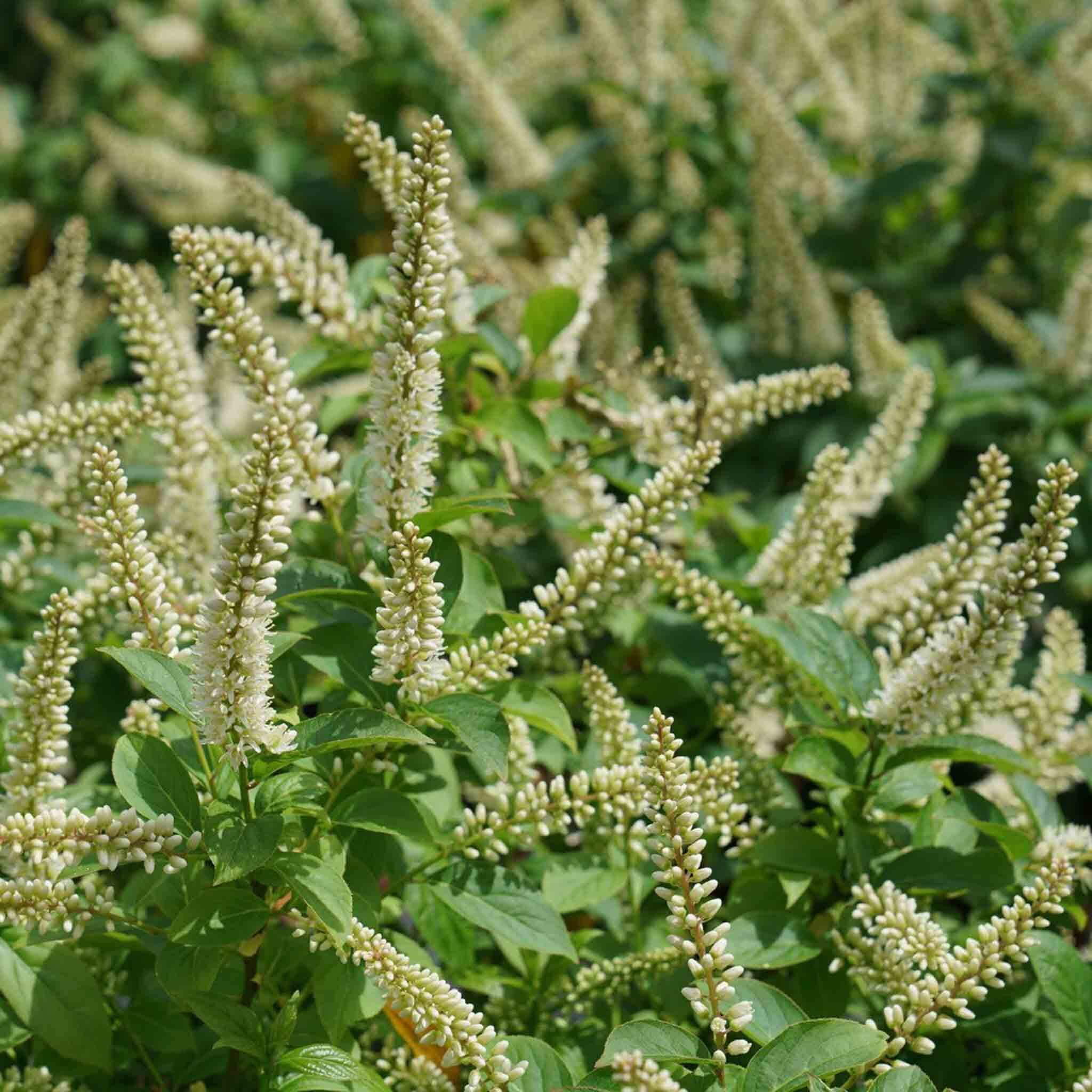
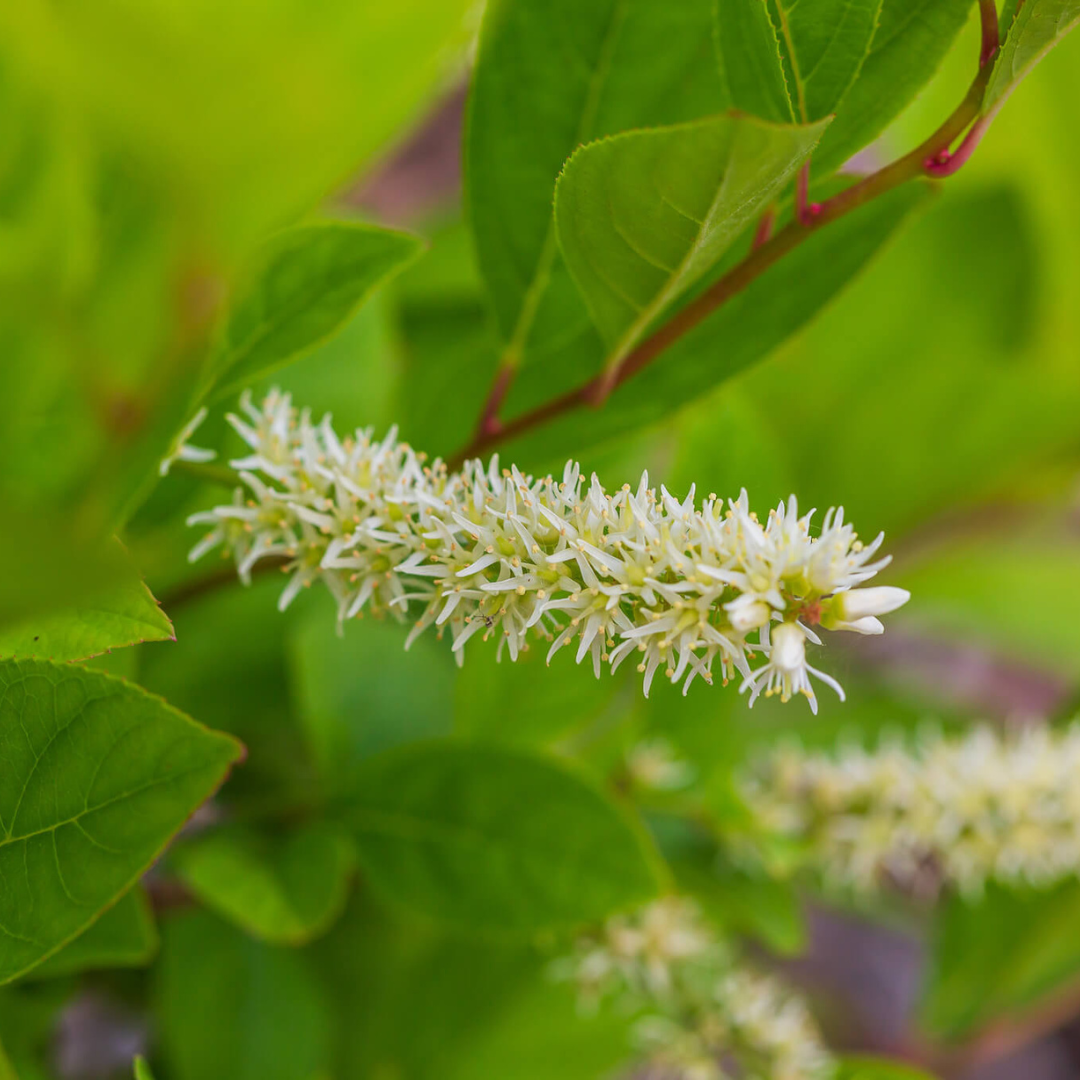

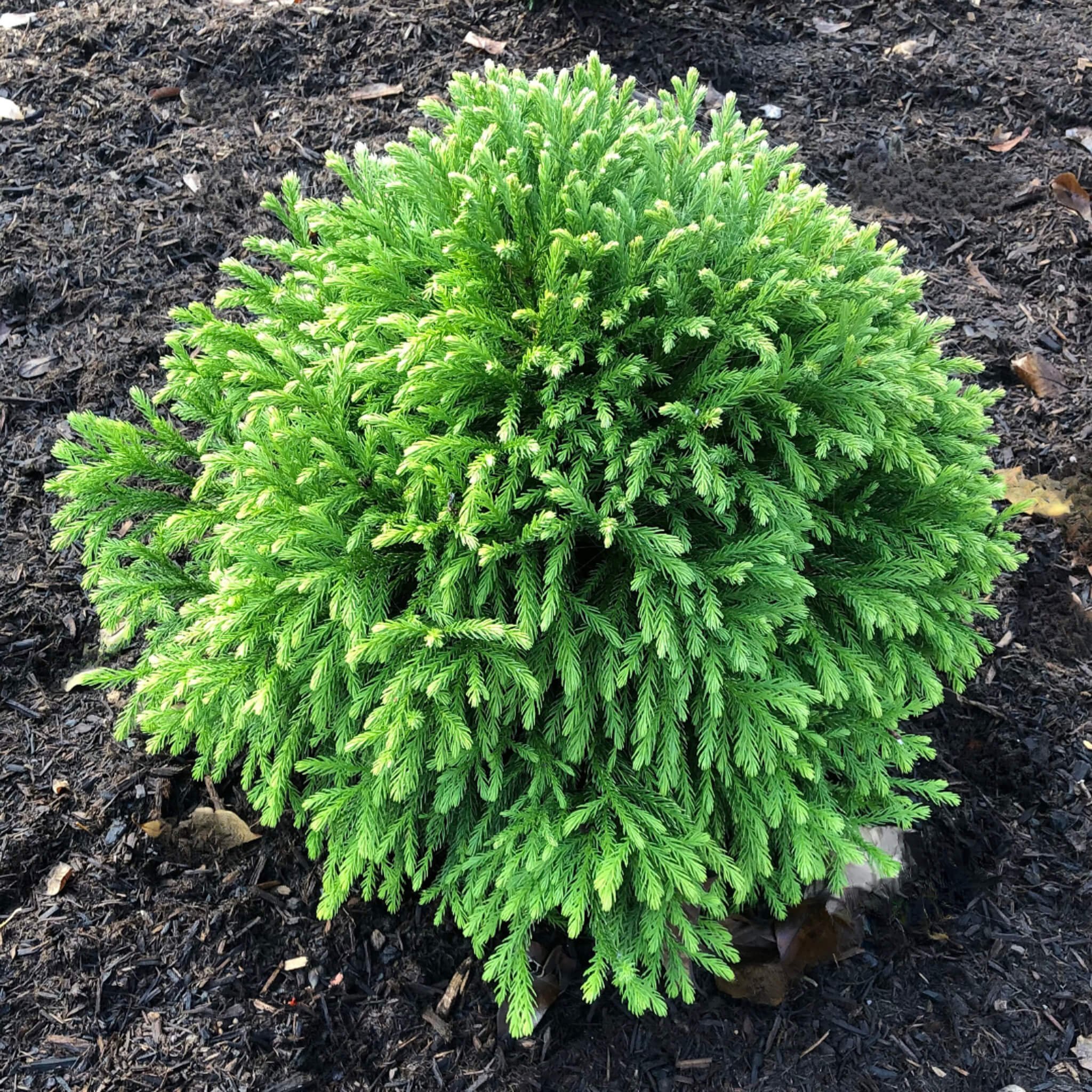

A Deer Resistant Shrub With Pink Flowers